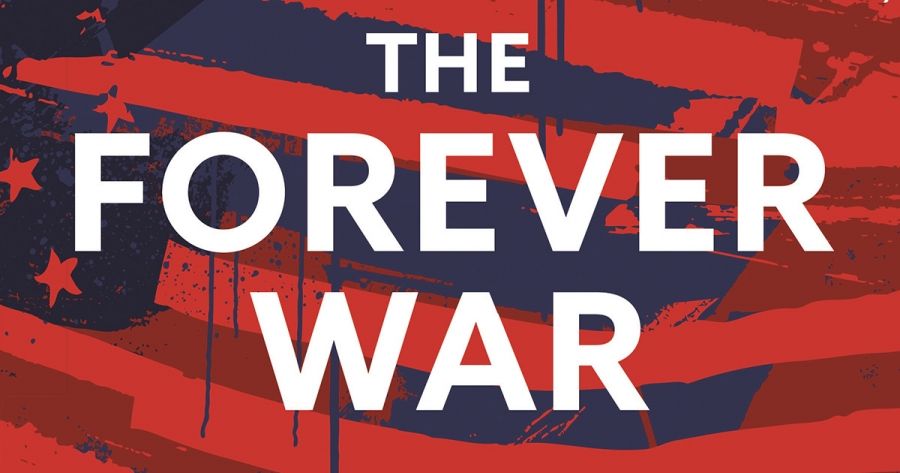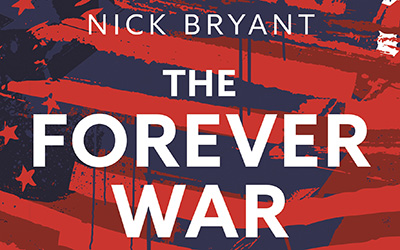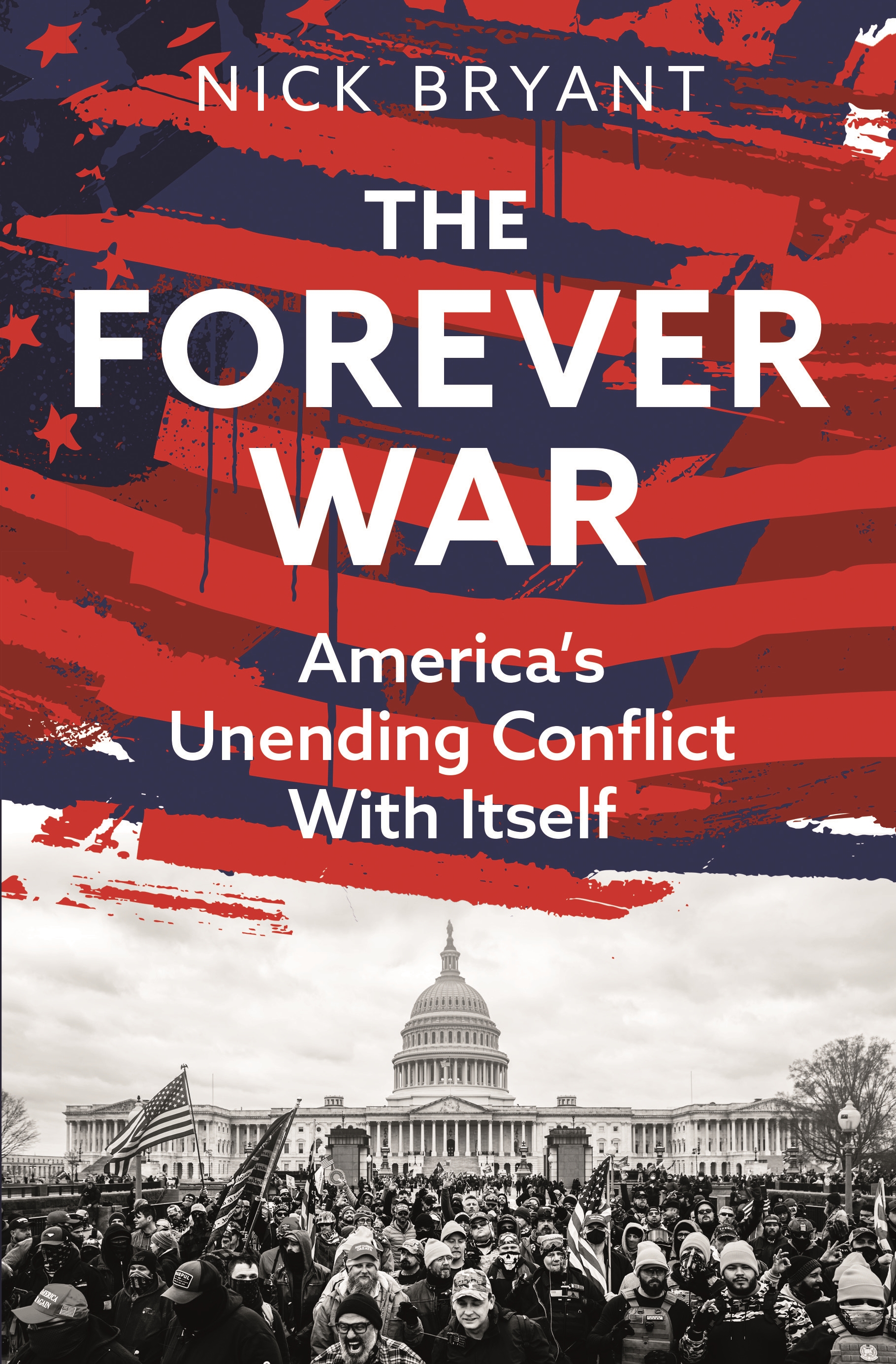
- Free Article: No
- Contents Category: United States
- Review Article: Yes
- Article Title: Death by suicide?
- Article Subtitle: Division as a default setting in America
- Online Only: No
- Custom Highlight Text:
It was a young Abraham Lincoln’s prediction that the United States ‘must live through all time, or die by suicide’. Nick Bryant wants us to believe the latter is coming true. America has been popping pills from the very beginning. Now the fatal overdose is inevitable. This time, we are reaching an ‘extreme polarization … 250 years in the making … a second civil war’. Rather than the hysteria for and against Donald Trump being an aberration, ‘the hate, divisiveness and paranoia we see today,’ Bryant argues, ‘are in fact a core part of America’s story’. It has been on this path since 1776; Trump is less a waypoint than a destination.
- Featured Image (400px * 250px):

- Alt Tag (Featured Image): Timothy J. Lynch reviews ‘The Forever War: America’s unending conflict with itself’ by Nick Bryant
- Book 1 Title: The Forever War
- Book 1 Subtitle: America’s unending conflict with itself
- Book 1 Biblio: Viking $36.99 pb, 416 pp
- Book 1 Cover Small (400 x 600):

- Book 1 Cover (800 x 1200):

- Book 1 Readings Link: https://www.readings.com.au/product/9781761048623/the-forever-war--nick-bryant--2024--9781761048623#rac:jokjjzr6ly9m
In making this claim, Bryant, the former BBC Washington correspondent, is joining a long list of pro-American foreign realists. He wants the experiment to work; he fears it no longer can. ‘Goodbye America’ is the title of his afterword. American prospects, long examined critically by European élites, have consumed the hopes and fears of foreigners from Alexis de Tocqueville to Lord Bryce, from Gunnar Myrdal to Bernard-Henri Lévy. This book deserves to be bracketed with them.
Has Bryant offered the best recent book by a foreign observer (who now watches the conflict from Sydney) of where America is at? Possibly. The quality of his writing (high), his long experience of the United States (varied), and his moral investment in its success (reassuring), certainly place him in the top ten. Paired with his When America Stopped Being Great (2020), Bryant has offered us two books of sustained arguments about US failure.
Bryant’s declinism was honed during the Abbott Terror: The Rise and Fall of Australia: How a great nation lost its way (2014). Being perennially disappointed with Britain’s imperial children has earned Bryant a loyal fan base. I’m in it – with some caveats.
He gets a lot right. The concept of America as the ‘forever war’ is a welcome departure from the ‘why-can’t-we-all-just-get-along?’ approach of so much progressive history. The United States was born in turmoil – and without turmoil there can be no liberty. Its politics, as Samuel Huntington, the great Harvard historian, argued, is ‘the promise of disharmony’. Bryant gets this. America does not exist to win the approval of foreigners. Rather, its experiment in unalienable rights protected by (and from) limited government, means endless conflict – sometimes kinetic, often politico-legal – over its testing.
The war correspondence Bryant sends from the front deals with the presidency (a mixture of the authoritarian, demagogic, and populist), race (‘America’s constant curse’), guns (‘where America is a prisoner of its history’), abortion (too subject to the ‘creed of originalism’), and ‘toxic exceptionalism’ (grounded in American supremacy). These modern maladies, he argues, have long incubation periods.
The book’s strongest chapters help fit Trump into the history of the American presidency. Trump’s alleged crimes pale against the misuse of executive power by Andrew Jackson (‘the first brazen authoritarian’), Abraham Lincoln (‘the Great Suspender’ of the Constitution), and Franklin Roosevelt (who interned 125,000 Japanese Americans in what the author calls ‘concentration camps’). And, of course, Trump does not have blotting his copybook a 9/11 attack, an Iraq war, a skedaddle from Afghanistan, or a Global Financial Crisis. This is not enough to exculpate Trump, Bryant argues. But he provides some compelling revisionism of the kind likely to be practised by historians yet unborn.
Only occasionally does Bryant fall into a Laura-Tinglesque disdain. I paraphrase: ‘If only the US could adopt a less polarised and more technocratic politics, there would be universal healthcare, racial justice and abortion on demand. The nation would then resemble the more sensible technocracies of the Anglosphere.’ His chapters on guns (he wants harder access to them) and abortion (he wants easier access to it) follow a predictable script. Using the recent repeal of Roe v. Wade as an indictment of constitutional originalism is to draw a long bow.
Bryant’s account is an endogenous one. The forever war is grown from deep tissue. He does a terrific job laying out the enduring binaries of American political development. In the beginning, it was Federalists vs Antifederalists, then it was North vs South. Now it is Alexandria Ocasio-Cortez vs Marjorie Taylor Greene. ‘Division is a default setting.’ Worse, Bryant tells us, ‘the more history becomes a driver of politics the more historically unlettered America seems to get’.
Should exogenous factors make us less gloomy about all this? America, after all, retains the friendship of the most successful nations on earth. The European Union is a club made viable by US support. The great fear in Paris and Berlin (and especially in Kyiv) is not the extension of American economic and military power, but its withdrawal. The market for US power is belied by the internal conflict that has long plagued the Republic. The world wants Americans to get along. If Bryant’s thesis is correct, this will make no difference to US prospects.
While America could not retain the residency of the author and his young family (gun violence was too ever-present), it remains the premier pole of attraction for immigrants. China, India, and Russia, let alone Iran, North Korea, and South Africa, do not offer exportable systems. These nations have a politics of exit, of people trying to escape. The United States? It is riven, in part, by the politics of entry, of people desperate to get in (see the southern border). The potential of this demand to foster renewal is significant. Reading Bryant’s account, we would not think so.
Religious freedom, so beloved by many of those new immigrants, is elided. The forever war has ideological, sectional, racial, identitarian, and even reproductive fronts. It does not have a religious one. Faith wars are absent in American history. If it were a nation of secular atheists, this would not matter. But the United States is the most religious of liberal democracies. As Robert Putnam has argued convincingly, in American Grace (2010), this has a positive impact on social relations. It teaches an empathy which transcends the binaries that are Bryant’s focus.
Bryant has written an excellent account of how American history informs its present and why history wars, fought by the mobilised ignorant, might mar its future. He brings a journalist’s clarity (without the usual left-of-centre baggage) into alignment with some skilful historiographical excavation (without getting stuck in minutiae). I don’t share his gloom. But I made a similar escape to Australia and now, like him, watch America from here.
If Lincoln’s warning of death ‘by suicide’ is too morbid, and Bryant’s ‘forever war’ too bleak, how about Andy Rooney’s corrective: ‘It’s amazing how long this country has been going to hell without ever having got there.’


Comments powered by CComment